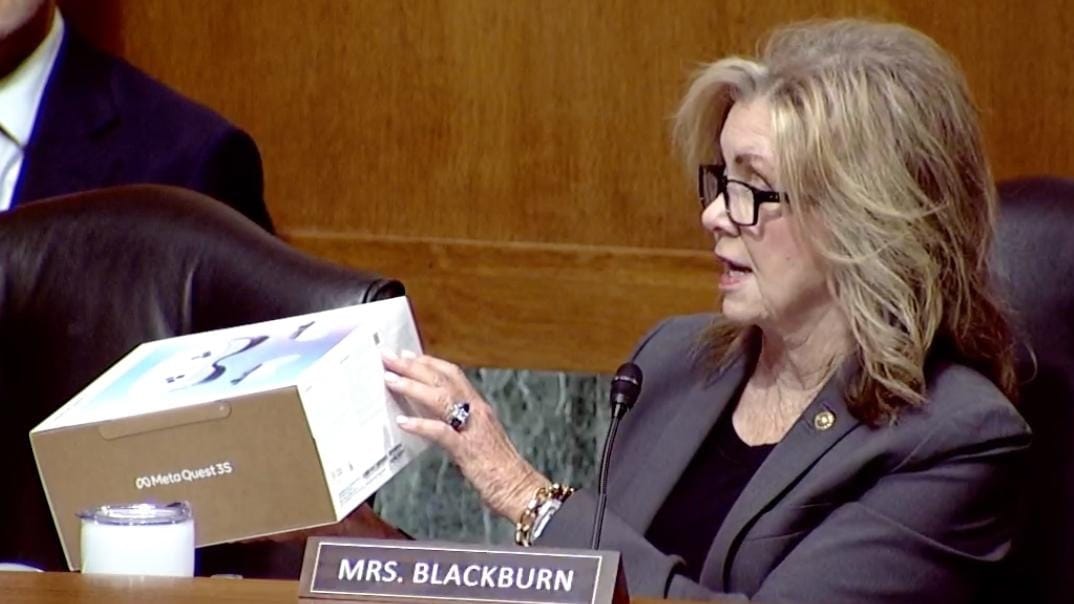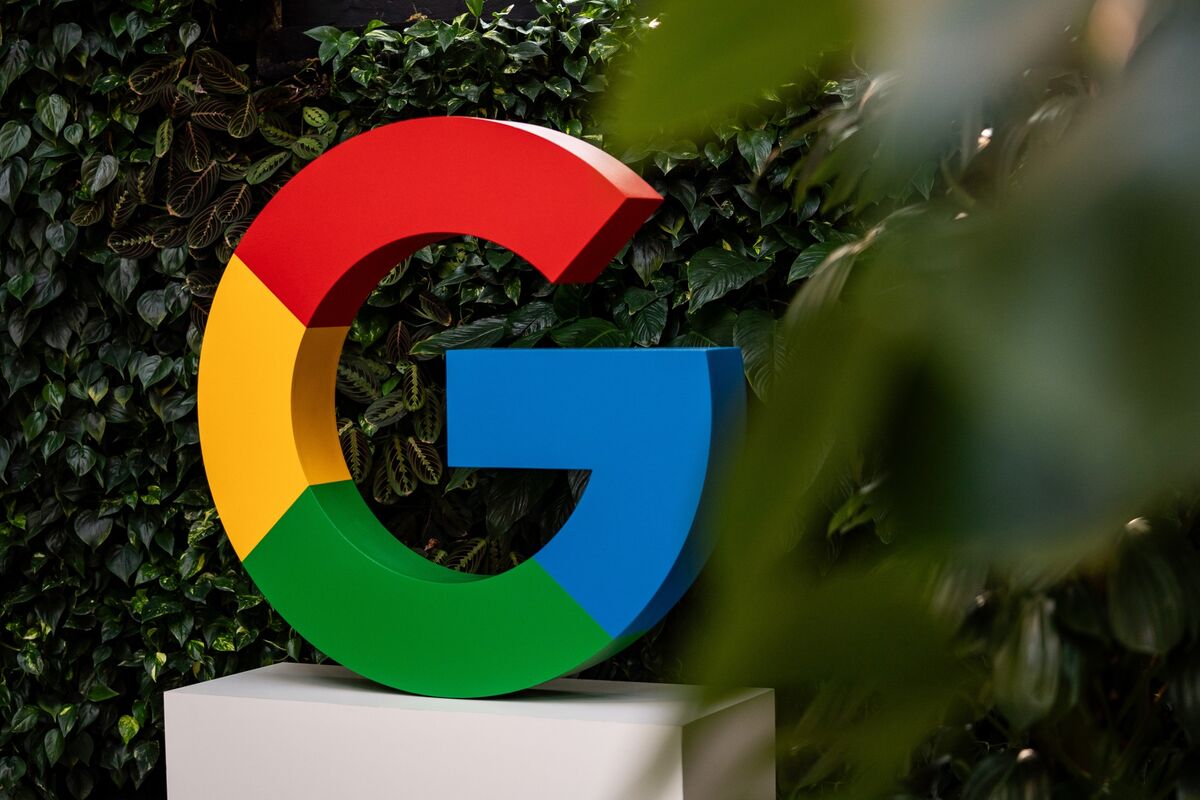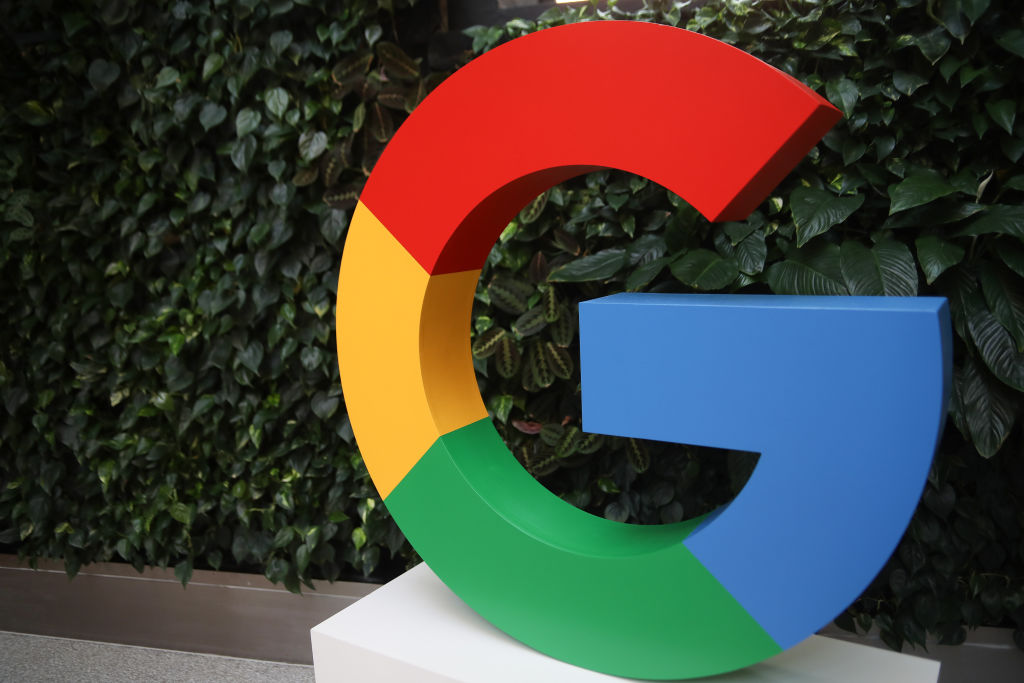Ted Cruz AI Moratorium Reboot, Whistleblowers Testify About Meta Cover-Up
This week in The Dispatch we’re covering Ted Cruz’s new AI bill, whistleblower testimony of another Meta cover-up, and polling that shows voters across party lines want guardrails on Big Tech.

Welcome back to The Dispatch from The Tech Oversight Project, your weekly updates on all things tech accountability. Follow us on Twitter at @Tech_Oversight and @techoversight.bsky.social on Bluesky.

BREAKING: Hours ago three new product-liability lawsuits were filed against Character AI and Google. One of those cases is brought by the parents of 13-year-old Juliana Peralta, who died by suicide after confiding in a Character AI bot. The company's products failed to direct her toward mental health resources. This is yet another tragedy due to Big Tech's predatory product designs (REMEMBER: Google is under investigation for its acqui-hire deal with Character AI), and comes just days after the Raine family filed its wrongful death case against OpenAI.
⏰ WHAT WE'RE WATCHING: At 2:30 PM today the Senate Subcommittee on Crime and Counterterrorism will hold a hearing on the harms of AI chatbots on children. Lawmakers will hear testimony from from experts and families of children harmed by chatbots, underscoring that these products are designed to ensnare vulnerable minors and lack basic safeguards when children’s lives are at stake. This another chance for Congress to commit itself to passing legislation that truly protects children online and answer the basic question: Why is the Senate blocking KOSA?

📜 CRUZ WANTS BIG TECH FEDERAL PREEMPTION: Just weeks after the Senate annihilated Big Tech’s 10-year AI moratorium in a 99–1 vote — so toxic even he voted against it — Ted Cruz is back with a redux: the SANDBOX Act. It’s the same giveaway, rebranded with a slightly different backdoor for AI companies – this time seeking to waive any law or rule the Trump White House decides is too “inhibiting.”
The bill would:
- Grant the Trump Administration sweeping new powers to directly pick winners and losers in the AI industry—ensuring Trump-aligned Big Tech CEOs play by one set of rules, while innovative start-ups and “little Tech” are forced to play by another.
- Give the White House Office of Science and Technology Policy (OSTP) the power to overrule independent agencies like the FTC, which enforces children’s privacy rules and cracks down on online scams.
- Usurp Congressional authority by creating a fast-track, Congressional Review Act-style process to gut federal rules that protect the public from unaccountable tech giants.
- Automatically greenlight waivers if agencies fail to act within 90 days, with exemptions renewable for a full decade.
Public Citizen warns the bill would put “public safety on the chopping block in favor of corporate immunity.” It would apply Silicon Valley’s “move fast and break things” mantra directly to laws meant to protect kids, consumers, workers, and civil rights.
Sacha Haworth, Executive Director of the Tech Oversight Project, underscored the stakes:
“Beating China in the AI race and spurring economic growth in the U.S. doesn’t mean we need to recklessly trade away rights that protect everyday Americans from Big Tech’s predatory business practices and algorithms. The only innovation happening in this bill is creating new ways for the Trump Administration to strip away standards that hold Big Tech accountable for violating privacy, endangering kids online, and letting scammers rip off seniors and veterans.”
The takeaway: Cruz’s bill isn’t about innovation. It’s a sweetheart deal for Big Tech that hands the Trump White House the ability to erase protections Congress already passed — and to block new ones like the Kids Online Safety Act (KOSA) before they take effect. The bill also doesn’t specify which kinds of laws companies seek waivers for, so all environmental, health care, and civil rights protections could be on the chopping block.

📢 ANOTHER HEARING, SAME BIG TECH PREDATORS: Last week, two former Meta researchers testified before the Senate Judiciary Subcommittee on Privacy, Technology, and the Law, after the Washington Post revealed how Meta knew kids weren’t safe in its “Metaverse” — and ordered evidence of child exploitation erased, data-sharing restricted, and reports rewritten to shield itself from liability.
Jason Sattizahn and Cayce Savage told senators that staff were directed to write reports “to limit risk to Meta,” while researchers were siloed and locked out of internal groups, making it nearly impossible to coordinate safety research efforts. Savage put it bluntly: “I wish I could tell you the percentage of children in VR experiencing these harms, but Meta would not allow me to conduct this research.”
Senators across the aisle say they’re losing patience. Sen. Marsha Blackburn said Meta’s willingness to profit at the expense of kids’ safety is “revolting.” Sen. Amy Klobuchar called for Congress to pass the Kids Online Safety Act. Sen. Josh Hawley said it's clear it's time to allow parents and victims to sue for harms caused. “They have got to be able to get into court and to get in front of a jury and hold this company accountable. And that begins with Mark Zuckerberg.”
Meta’s cover-ups are relentless, whistleblowers keep proving it, and key Members of Congress and Senators are blocking bills that would protect kids today. If lawmakers are serious about protecting kids, it’s past time they start bringing bills to the floor.

📊 ACROSS ALL PARTIES, VOTERS DEMAND ACTION AGAINST BIG TECH: A new PPP/Tech Oversight Project survey shows voters in Michigan, Minnesota, Pennsylvania, and Wisconsin are overwhelmingly frustrated with Big Tech. Across party lines, they say tech companies have too much influence over government policy — and they want action on privacy, kids’ safety, and corporate accountability. The numbers are overwhelming.
Across all four states:
- Data privacy: 87–89% of voters want lawmakers to stop tech companies from collecting and selling sensitive personal data.
- Surveillance pricing: 88–91% back bans on manipulative pricing tactics.
- Kids’ safety: 84–89% support laws to curb exploitative algorithms and addictive social media features targeting children.
- Protecting seniors and veterans: 82–88% support tougher protections against online scams, most of which spread on Big Tech platforms.
On corporate power, bipartisan majorities in each state agree that Big Tech has too much power, including too much influence over government policy:
- Michigan: 83% of Democrats, 66% of Republicans, 81% of Independents
- Minnesota: 90% of Democrats, 66% of Republicans, 77% of Independents
- Pennsylvania: 83% of Democrats, 72% of Republicans, 71% of Independents
- Wisconsin: 82% of Democrats, 65% of Republicans, 82% of Independents
The surveys also highlight state-specific concerns about AI data centers:
- Minnesota: 74% support laws holding tech companies accountable for the environmental and energy costs of massive data centers.
- Pennsylvania: 77% support similar accountability measures for data centers in the state.
- Wisconsin: 67% oppose giving Big Tech more tax breaks to build new data centers.
An overwhelming majority — on both sides of the aisle — see Big Tech as too powerful, unaccountable, and costly for their communities. They’re demanding action. Politicians would be smart to listen.

🌊 ADVOCATES IN CA DEFLECT BIG TECH – FOR NOW: This year’s California legislative session wrapped with a string of victories as key tech accountability legislation passed in spite of a flood of last-minute lobbying from Big Tech companies.
In a key victory for advocates, Assemblymember Rebecca Bauer-Kahan’s AB 1064 sailed through both chambers and is now headed to Governor Newsom’s desk. Industry groups are already calling on him to veto, even though that bill still has strong backing from child-safety advocates, pediatricians, and watchdogs.
Meanwhile, Sen. Steve Padilla’s SB 243, once promising, was gutted by amendments. It now exempts video games and smart speakers, cuts third-party audits, and delays suicide-related reporting until 2027 — a gift to industry lobbyists who lined up behind it suddenly days before the amendments were announced.
At the same time, Google has launched a shadow campaign in Sacramento, deploying dozens of lobbyists and proxy groups to quietly weaken or kill bills on kids’ online safety, privacy, and AI accountability before they reach the governor’s desk. One target was AB 566, a basic privacy measure that forces browsers to respect users’ “do not share my data” signals. Google tried to sink it through proxies — but lawmakers saw through it, and the bill passed in a major win for consumers.
The through-line is the same: the tech lobby is spending millions fighting to dilute, delay, or derail safeguards, but California lawmakers are wise to the game and listening to public calls for accountability and action. Now, it’s time for Governor Newsom to sign real protections into law.

🔓 END-TO-END NEGLIGENCE: The former head of security at WhatsApp, Attaullah Baig, has filed a federal lawsuit accusing Meta of ignoring massive privacy and security flaws that put billions of users at risk. According to the complaint, thousands of employees could access sensitive data like location, contacts, and group memberships; more than 100,000 accounts were hacked every day; and leadership rejected basic security fixes. When Baig raised the alarm to Zuckerberg, he says he was retaliated against and fired.
His case argues Meta violated its 2019 FTC privacy settlement — the same $5 billion deal that was supposed to force the company to overhaul its practices. Instead, Meta doubled down.
Baig is just the latest to come forward. There’s a reason whistleblowers keep emerging and the throughline is obvious: Meta doesn’t fix systemic failures because protecting people isn’t the goal. Protecting profits is.

🌍 MEANWHILE, ACROSS THE OCEAN: Europe is gearing up to take a harder line on kids’ online safety. In her State of the Union, European Commission President Ursula von der Leyen said it’s time to treat social media like alcohol and tobacco — age-gated and restricted to protect children from harmful content and addictive algorithms.
She pledged to study Australia’s new age-limit policies, commission an expert panel by year’s end, and push legislation that puts parents — not algorithms — back in charge. Her message was clear: “When it comes to our kids’ safety online, Europe believes in parents, not profits.”







Slide into our DMs...
We want to hear from you. Do you have a Big Tech story to share? Drop us a line here.







